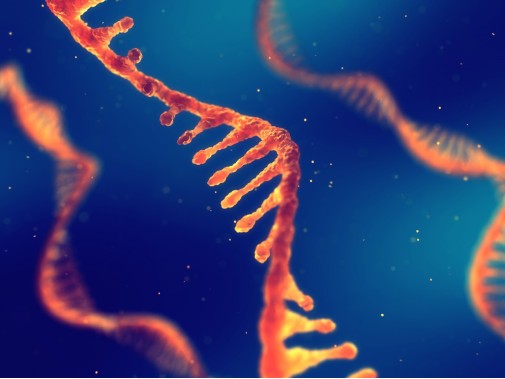Potential Covid-19 vaccines not affected by dominant “G-Strain”
Posted on 8 October 2020
 CSIRO researchers are studying SARS-CoV-2, which has a single-stranded RNA genome, to understand how the virus evolves. Credit CSIRO
CSIRO researchers are studying SARS-CoV-2, which has a single-stranded RNA genome, to understand how the virus evolves. Credit CSIRO
Most vaccines under development worldwide have been modelled on the original ‘D-strain’ of the virus, which were more common amongst sequences published early in the pandemic.
Since then, the virus has evolved to the globally dominant ‘G-strain’, which now accounts for about 85 per cent of published SARS-CoV-2 genomes.
Efficacy of vaccine candidates
There had been fears the G-strain, within the main protein on the surface of the virus, would negatively impact on vaccines under development. But the research by Australia’s national science agency the Commonwealth Scientific and Industrial Research Organisation (CSIRO), found no evidence the change would adversely impact the efficacy of vaccine candidates.
The study tested blood samples from ferrets given a candidate vaccine against virus strains that either possessed or lacked this mutation, known as ‘D614G’.
Good news
Professor Seshadri Vasan, who holds an honorary chair in Health Sciences at the University of York, is leading the Dangerous Pathogens Team at CSIRO and is senior author of the paper.
Professor Vasan said: “This is good news for the hundreds of vaccines in development around the world, with the majority targeting the spike protein as this binds to the ACE2 receptors in our lungs and airways, which are the entry point to infect cells.
“Despite this D614G mutation to the spike protein, we confirmed through experiments and modelling that vaccine candidates are still effective.
“We’ve also found the G-strain is unlikely to require frequent ‘vaccine matching’ where new vaccines need to be developed seasonally to combat the virus strains in circulation, as is the case with influenza.”
Vaccine race
CSIRO Chief Executive Dr Larry Marshall said the research was critically important in the race to develop a vaccine.
Dr Marshall said: “This brings the world one step closer to a safe and effective vaccine to protect people and save lives.
"Research like this, at speed, is only possible through collaboration with partners in Australia and globally. We are tackling these challenges head on and delivering solutions through world-leading science.”
Explore more news

Sodium channels in breast cancer cells a promising target for future treatments, study reveals
Thursday 25 July 2024

Cooling the classroom: University of York researchers to investigate UK schools’ responses to hot weather
Wednesday 24 July 2024

Hunter-gatherers kept an 'orderly home' in the earliest known British dwelling, study shows
Tuesday 23 July 2024

Study uses Game of Thrones to advance understanding of face blindness
Tuesday 23 July 2024

York academic contributes to new report on men’s health which reveals disparities between most and least deprived areas in the UK
Wednesday 17 July 2024
Media enquiries
Our response to the coronavirus pandemic
We're working with partners in York and further afield as part of a global effort to fight the COVID-19 virus. From covid analysis in the labs to producing face shields for the frontline, we're using our knowledge and expertise to support the effort.
